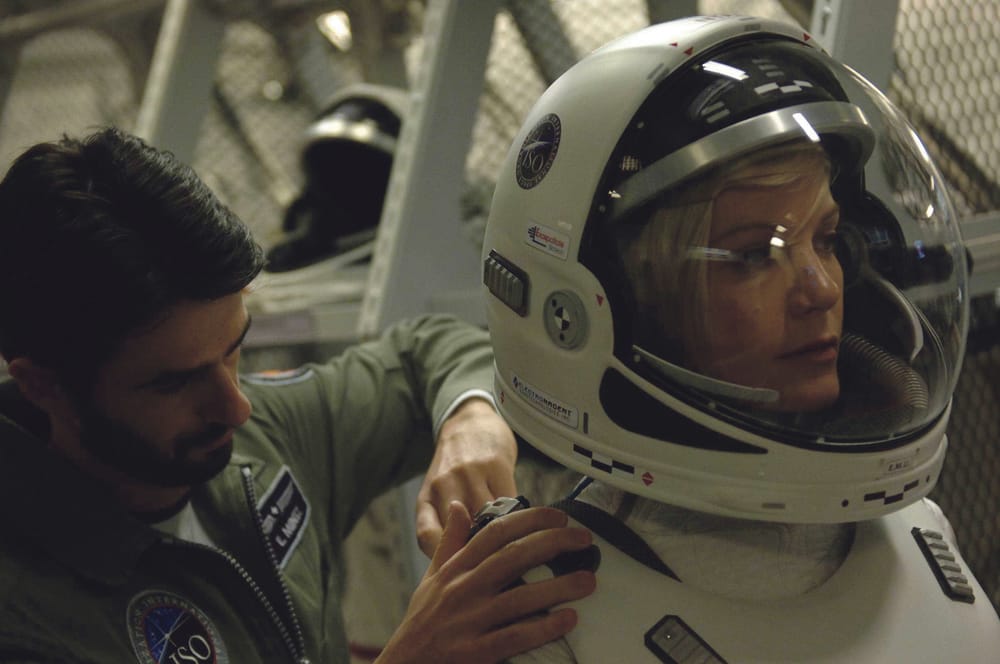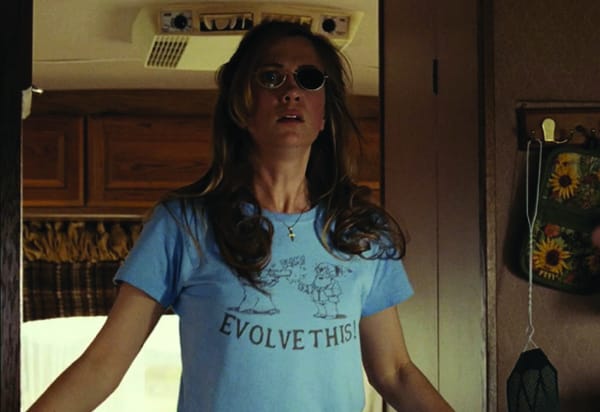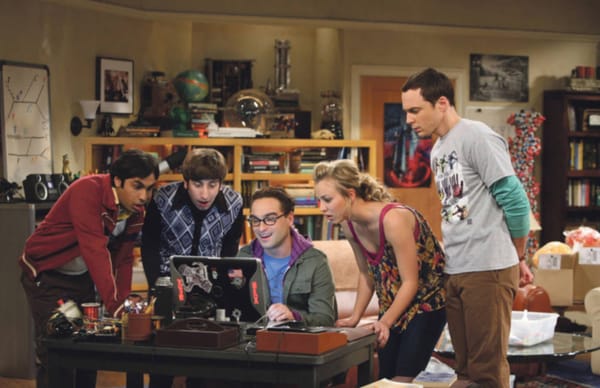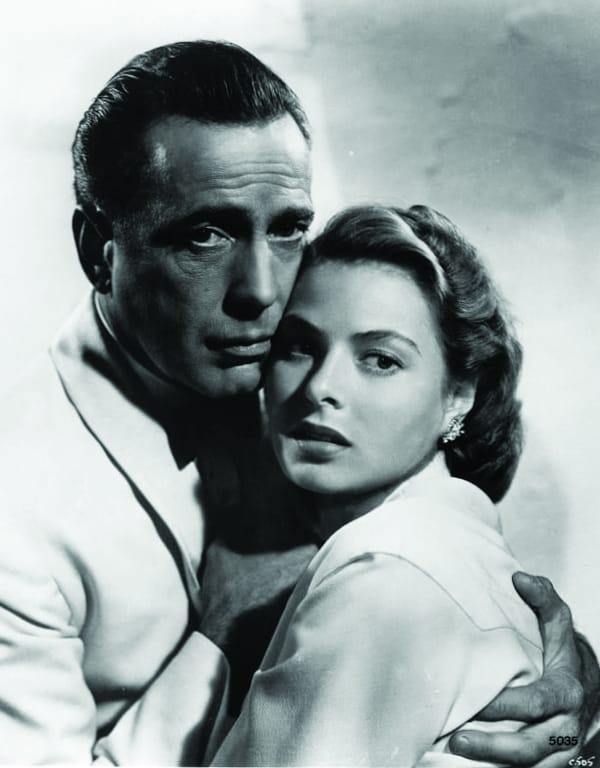Best in Class: Sci-fi
Maciej Matuszewski kicks off our week long look at the highlights of our favourite genres

I’ve written a lot about science fiction for Felix over the last few months but now I face my most difficult task yet, to decide on the best television shows in the genre.
Those of you who read my shining review of ‘Stargate SG-1’ might be expecting me to include it on this list. It is certainly a lot of fun and has great action and adventure, but that is not enough. ‘Stargate’ is fantastic light entertainment but I consider science fiction to be a serious genre, with its best examples having to tell the most compelling stories. Similarly, I’m not including any shows like ‘Futurama’ and ‘Red Dwarf’. While they do use science fiction elements very well, they are primarily comedy: very good comedy, but still having no place on this list.
Finally some might find my omission of any of the ‘Star Trek’ shows glaring. While they do have their moments and their influence is indisputable, the quality of their episodes is simply far too variable. I must also take issue with their near constant use of technobabble. Listening to minutes of meaningless, made-up science each episode is simply infuriating. Even worse it is often used by writers to create deus-ex-machina endings: if the crew of Enterprise or Voyager are faced with some insurmountable obstacle you can be almost sure that they will solve at the last minute with some never before and never to be mentioned again piece of technology, thereby removing all dramatic tension.
Enough with all this complaining, let’s move on to the list proper. One of the most common means of eliminating technobabble is to shift the focus of the story from the science and to make it serve as backdrop to the plot. This was probably best achieved by Babylon 5 and the new Battlestar Galactica. These use a futuristic setting to add new vigour to age old themes of political corruption, tyranny and oppression.
Another strength of these shows is their well-developed characters. Unlike the cardboard cut-out epitomes of good and evil seen in shows like Star Trek the characters here are realistic, fallible and flawed human beings and, in some cases, aliens. Take for example ‘Babylon 5’ where Sheridan, the hero, chooses to sacrifice innocent telepaths to disable President Clarke’s forces.
Television has shown that it can do grand space opera very well, I just wish it could give something new a chance
This is not to say that these shows are without their problems. In its last few seasons ‘Battlestar Galactica’ seemed to me to start to lose focus. While ‘Babylon 5’ ended strongly, it’s first two seasons had a very slow pace and far too many filler episodes. This is a common problem with trying to stretch a good story over several seasons and why I much prefer mini-series as a television format.
Mini-series are the perfect middle ground between films and full blown series. They can contain far more character and plot development than the former without having to resort to put in pointless scenes as latter often have to. That is why the best science fiction television shows that I have ever seen are Torchwood: Children of Earth and the mini-series which started off the new ‘Battlestar Galactica’.
I first saw the ‘Battlestar Galactica’ mini-series on DVD and I sat enthralled by it for the whole three hour running time. I had never before seen such a well put together piece of television and was amazed that the show’s creators managed to keep up the tension until the very end. While I normally consider special effects to be only of secondary importance, they certainly deserve a mention here, with the space battle scenes being particularly good and helping to draw the audience into the action.
Torchwood: Children of Earth had a similar grip on me, helped in no small part by it being shown over five consecutive nights. I found the unexpected death of one the lead characters and the sacrifices necessary to overcome the alien enemy hugely poignant. By the end I was feeling so engrossed in the plot that I had real feelings of anger against the human antagonists, a true achievement for any work of fiction.
While the above choices show that I prefer a single, long storyline, I have nothing against more episodic, but still high-quality, shows. The best of these probably has to be the much praised Firefly. The show followed the crew of the ship Serenity as they tried to make a living by doing various legally suspect jobs on a number of recently terraformed frontier planets. It had a strong and diverse cast of characters and managed to wonderfully merge the ‘Wild West’-like setting on the surface of the planets with traditional science fiction themes like spaceships. It is easily of equal quality to the other shows I’ve mentioned and it is only personal preference which prevents me from counting it as being quite on par with them.
While all these programmes are good, and in fact great, I am somewhat disappointed that hard SF, my favourite science fiction sub-genre in literature, is almost completely absent from television. Hard science fiction looks at the possible future advances in science and technology but tries to do this in an accurate and plausible way, extrapolating from present day knowledge. The focus tends to be on the wonder of this new technology and the problems in developing and exploiting it. There are rarely, at least in the works Asimov and Clarke, my favourite authors, any huge galactic evils to battle or government conspiracies to expose. Like I said in my review of Clarke’s ‘The Fountains of Paradise’, stories about these sorts of things are important but it is also good to have the far more optimistic version of the future painted by hard SF.
Unfortunately it seems that television executives seem to think science fiction audiences demand just action and giant space battles. The fantastic Defying Gravity, a brilliant story about a manned exploration of the Solar System with a feel very similar to ‘2001: A Space Odyssey’, was cancelled after one season and remains almost completely unknown. If it had been allowed to develop it could have very well become a masterpiece. The flawed but still promising BBC series Outcasts looks set to follow the same fate. Television has shown that it can do grand space opera very well, I just wish it could give something new a chance.








